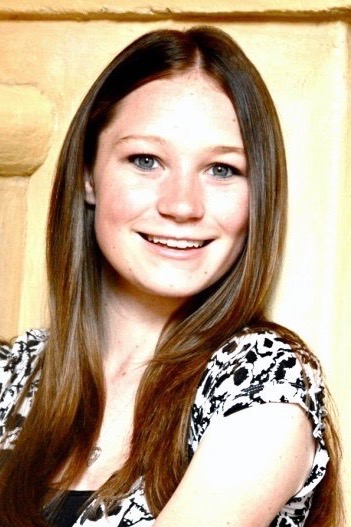Meghan Paulson understands how overworked schools are – how much is asked of students, teachers, staff and administrators. It can seem like there’s no end to the list of what must be accomplished in a school day, so the prospect of being a “healthy school” is just one more item heaped on a plate that’s already too full.
“But it isn’t,” explained Meghan, a 2017 Colorado School of Public Health at CSU MPH graduate in the Physical Activity and Healthy Lifestyles concentration. “In fact, it is the plate. Oftentimes health isn’t considered a priority in schools due to the lack of time and numerous academic standards schools are expected to meet. But creating a healthy school culture and prioritizing the health of students and staff will positively influence everything that takes place within your building. Having healthy students and staff creates the foundation that allows schools to even begin to add things to that plate.”
Meghan is the student health programming liaison for the Cherry Creek School District, a position that allows her to synthesize her public health education with her passion to help children cultivate lifelong health and wellness.
“To me, it seemed logical that the ideal environment to implement prevention efforts would be the school setting,” she said. “Not only would this approach address a large number of children in an equitable way, but it would also provide students an opportunity to learn, practice and establish healthy behaviors over the course of their K-12 education.”
While completing her undergraduate studies in sports and exercise psychology at the University of Kansas, she became extremely interested in prevention efforts related to the childhood obesity epidemic. Working as a research assistant, she participated in research projects aimed at studying motivational climates in an exercise setting and their impact on individuals’ enjoyment of and ongoing participation in exercise.
“This experience got me thinking about the necessity of creating positive and caring motivational climates in our schools’ physical education classes in particular,” she explained. “If a positive, caring climate is established in a PE class, it contributes to students’ enjoyment of exercise and hopefully increases the likelihood that they will stay active as they age.”
Pursuing a public health education dovetailed with her interests in childhood health and wellness, and she said one of the most valuable experiences of her MPH education was completing her practicum with the Poudre School District’s Wellness Department. She worked with the department for more than a year, learning about staff and student wellness. The department’s emphasis on equity and evaluation has greatly helped her in her career, she said, because those are concepts she has to regularly consider in her work.
Working for child health
After earning her MPH, she worked first as wellness coordinator for Pueblo City and County School Districts before transitioning to her current position with Cherry Creek School District. The district uses the Whole School, Whole Community, Whole Child (WSCC) model and Meghan oversees WSCC efforts involving health education, physical education and activity, nutrition environment and services, physical environment, and community involvement. Some of her current projects include coordinating and facilitating professional development for PE and health teachers, reviewing health education curriculum, assisting schools with implementation strategies for increasing students’ physical activity and consumption of healthy food during the school day, acting as a project manager for a Safe Routes to School grant, and communicating with local health organizations to discuss strategies for effective partnerships.
Through her work on these projects, the most valuable lesson she’s learned is that “things are never as easy as the textbook described,” she said. “You can know the research, the theories and the best practices, but that alone won’t get the job done. There’s truly no better teacher than real-life experience. Especially in a field like public health, you have to take the time to build relationships and trust with a community before coming in to help and offer your expertise.”
She said she has encountered a number of people who didn’t see the value in her work and at times it has been discouraging and frustrating, “but I had to remind myself why my work was so important and continue to be an advocate for what I’m passionate about.”

